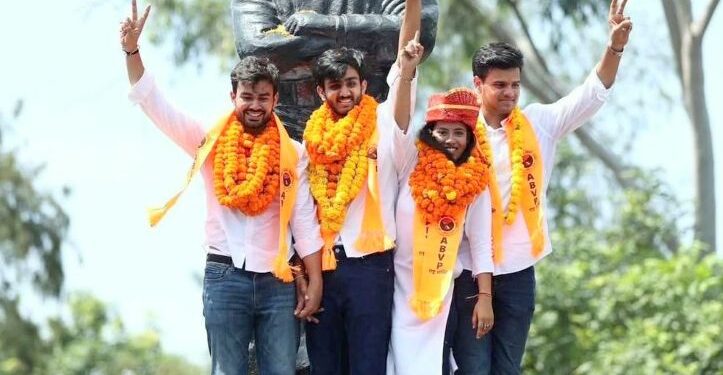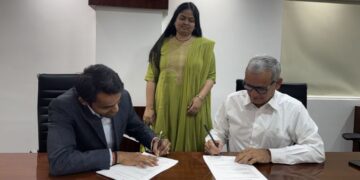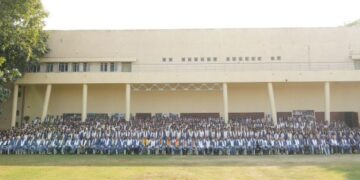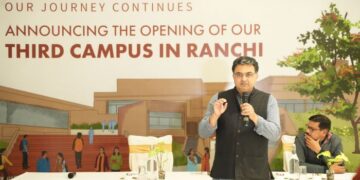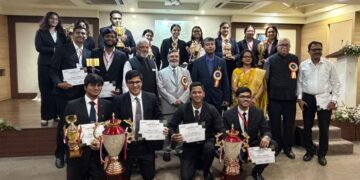The Akhil Bharatiya Vidyarthi Parishad (ABVP) swept the Delhi University Students’ Union (DUSU) elections 2025, winning three of the four central panel posts, including the presidency. Results declared on September 19 confirmed ABVP’s dominance, with Aryan Maan securing the President’s post by a commanding margin of 28,841 votes, defeating NSUI’s Joslyn Nandita Choudhary, who polled 12,645 votes.
ABVP’s Kunal Chaudhary (Secretary, 23,779 votes) and Deepika Jha (Joint Secretary, 21,825 votes) also registered emphatic wins. The Congress-affiliated NSUI managed to secure the Vice-President’s post, with Rahul Jhansla polling 29,339 votes to save face for the party. Voting took place on September 18.
BJP leaders hailed the outcome as a resounding endorsement of the party’s ideological stance. Union Home Minister Amit Shah and BJP president J. P. Nadda described the verdict as evidence of students’ faith in a “nation-first” ideology and a sign of growing nationalism among India’s youth.
https://x.com/AmitShah/status/1968980596660572541
https://x.com/JPNadda/status/1968979038107537807
This year’s turnout touched nearly 40%, with 60,272 students casting their votes—an increase from 35% in 2024. Polling was conducted peacefully across 52 centres with 195 booths, under Delhi High Court-monitored guidelines ensuring clean campaigning. Strict norms on posters, loudspeakers, and defacement of public property were enforced, with candidates required to furnish bonds as a safeguard against malpractice. Campaign priorities this year revolved around campus safety, subsidised metro passes, hostel shortages, free WiFi, women’s security, and gender representation.
Political observers see the results as a sign of Delhi University’s Gen Z students gravitating towards ABVP’s RSS-linked ideology, while NSUI retains only limited relevance. Analysts credit ABVP’s strong social media push, grassroots presence, and issue-focused outreach for its decisive edge.
https://x.com/nsui/status/1969010424583524622
While the ABVP now faces the challenge of delivering on its promises, the election marks a deeper transformation in campus politics. The 2025 polls were more disciplined and less noisy than in the past, reflecting a shift towards meaningful engagement on issues rather than the notoriety of muscle power, defacement, and disorder that earlier tarnished DUSU’s image.
The emerging healthier democratic process at Delhi University is being seen as a precedent for other campuses—strengthening student representation, encouraging youth participation, and contributing to the holistic development of India’s future leaders.


